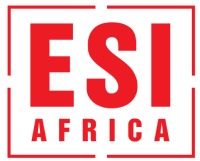Carbon markets and measuring impact of a low carbon journey
Customers exploring carbon markets nowadays are interested in high integrity carbon credits
As the Climate Impact partner to the Carbon Markets Africa Summit, One Carbon World will measure the summit’s carbon footprint in October in Johannesburg.
They hope that the data they will gather will help event organisers, VUKA Group, understand the impact of their work.
“We are excited to work with them to talk about how we can then reduce some of those emissions and set some targets to do that,” explained Madeleine Garlick, One Carbon World Africa Director.
As a not-for-profit entity dedicated to helping organisations reduce their carbon footprint, One Carbon World believes action to tackle climate change has the potential also to support social and environmental goods and help communities.
Garlick explained that the company began by supporting businesses on their low-carbon journey by measuring, reducing and rebalancing their carbon footprint. This included advice and guidance to organisations on how to set tailored targets, particularly through the science-based targets initiative, SBTI.
“We believe companies should be doing everything they can, big or small, to start their low-carbon journey. For some companies, this takes time, but we believe every step is a good one,” she said.
Nature and carbon markets
More recently, they have begun expanding into nature-based solutions projects in the carbon market, in line with what customers are requesting – high-integrity carbon credits.
“We particularly support our customers and clients and projects through the MRV process (monitoring, reporting and verification) to ensure that their process, their activities are high integrity and comply with all the relevant data and global verification requirements.”
One Carbon World is also a UNFC observer organisation: “For us, this is really important because it gives us an opportunity to profile and support best practice from around the world. And we’re delighted to be able to do this to encourage and incentivise a better carbon market.”
Garlick says they believe global carbon markets are at an inflexion point: “We have seen all of the forecasts about the potential scale of the market and some pretty bombastic estimates about the cost of carbon in 2050.
“So, whilst we believe that these markets will grow, what most people don’t know is the scale and pace and geographical spread of how the markets will expand.
“Some have said that there is a dampening of demand in the African carbon market, we think exactly the opposite in the financial services sector.
“There is a saying which is that ‘a volatile market is a vibrant market and one filled with vitality’, and we think that this rings pretty true for the African carbon market.”
She points to the sustainability institute MSCI’s “compelling statistic” that the commitment to purchase high-quality, nature-based solutions projects in the first half of 2025 is triple the number for the same period in 2024.
“Their assessment shows to me that demand is hot, particularly for high integrity credits, which is fantastic because they’re saying that a lot of these credits are selling at around about the $50 a tonne [and] up.
“However, when we look across the African picture, it is very different. Different African countries are at a different point in their journey of understanding and taking advantage of the carbon markets globally.
“Whether that is the VCM working through voluntary systems or the article 6 arrangements that are in place, some African countries are really just beginning to dip their toe into the carbon markets whereas others are frankly global leaders through articulating robust, transparent frameworks at the national level … So it is patchy but there is definitely a development of the sector overall in a positive direction.”
A key question for her, though, is whether the next 5 to 10 years will see regulator environments that grow in ways to ensure external investment is facilitated and barriers to engagement of external finance into national carbon markets is encouraged.
African Carbon Markets Summit
The company sees the forthcoming Carbon Markets Africa Summit as place where buyers, consumers, project developers, countries, commmunities and NGOs can get together to exchange notes and learn from each other.
They would like to see an increase in domestic resource mobilisation into the carbon markets and find South Africa to be a good example thanks to the role of the JSE (Johannesburg Stock Exchange) and domestic regulatory framework.
“This is incentivising domestic institutions and domestic financial institutions to invest in the market and this is a really helpful supplementary financial flow alongside external investment into the development of the markets.
“One Carbon World at our heart is an MRV (monitoring, reporting, verification) institution. We believe that data is power. It’s power for communities, it’s power for the market, it’s power for CEOs and boardrooms to understand what is happening in their business.”
One Carbon World is a not for-profit organisation committed to supporting companies and businesses on their low carbon journey and official climate impact partner to the Carbon Markets Africa Summit.
Cover photo: masitta©123rf



